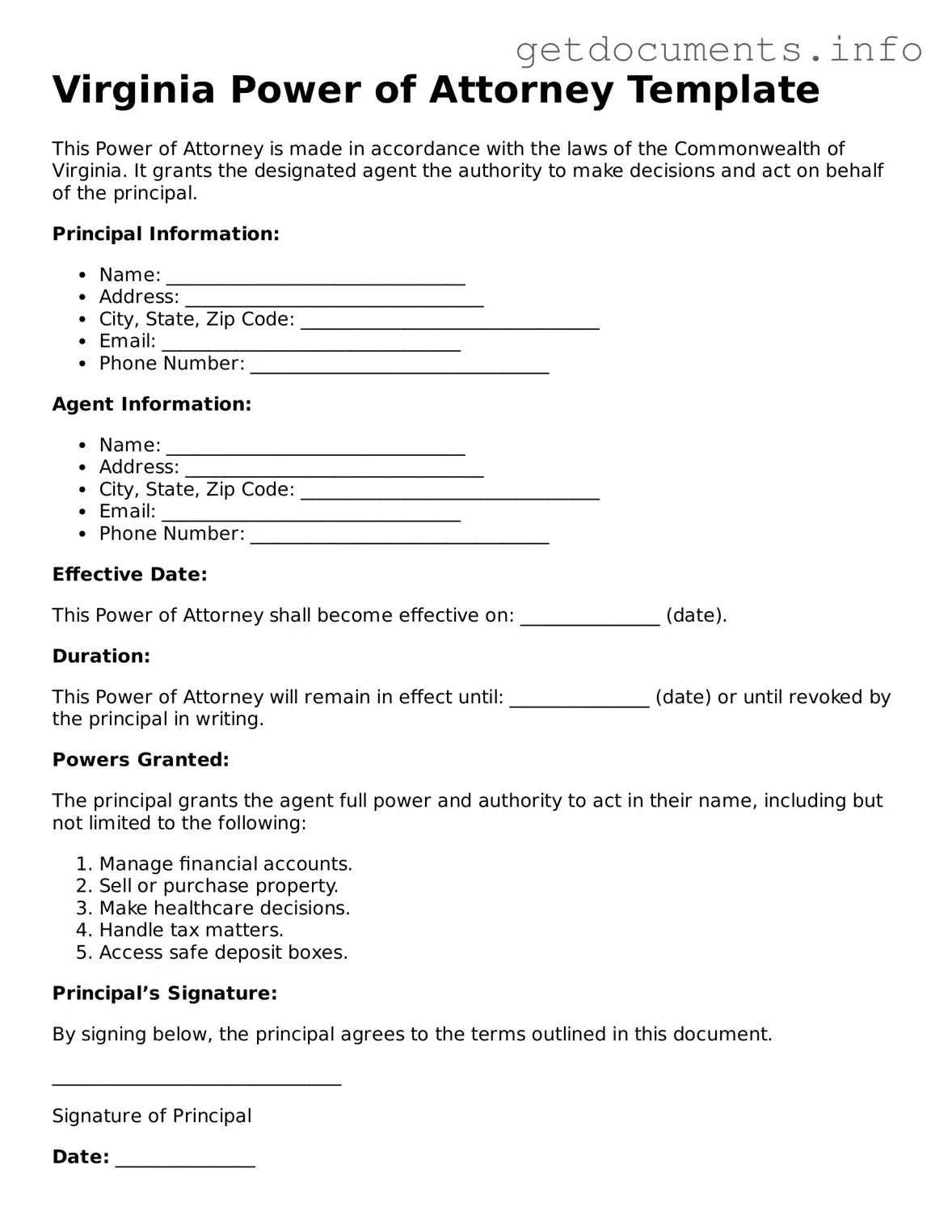Free Power of Attorney Template for Virginia
A Virginia Power of Attorney form is a legal document that allows you to designate someone to make decisions on your behalf when you are unable to do so. This form can cover a variety of financial and health-related matters, ensuring your wishes are respected. If you’re ready to take control of your future, fill out the form by clicking the button below.
Access Power of Attorney Editor

Free Power of Attorney Template for Virginia
Access Power of Attorney Editor
Got places to be? Complete the form fast
Fill out Power of Attorney online and avoid printing or scanning.
Access Power of Attorney Editor
or
⇩ PDF File
